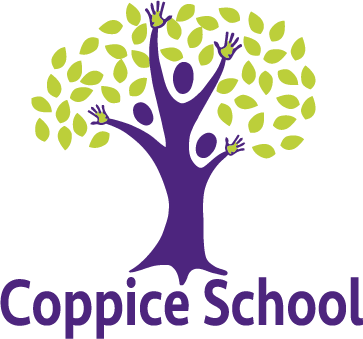Daring Discoverers
This page is here to give you some ideas about things you can do with your child/student when they are not at school. We hope you find them useful.
Finding out more:
If you are interested in any of the approaches we use in school and would like to find out more, please follow the below links to sites that can give you more information/resources.
If you're worried about the coronavirus, check out this downloadable free book which tells you all about what the virus is and isn't. There are some links at the back if you need some more support with your worries.
https://nosycrow.com/wp-content/uploads/2020/04/Coronavirus-A-Book-for-Children.pdf
If you have any worries or are finding life difficult, NSPCC have produced this assembly for young people with lots of useful information:
Makaton is the sign and symbol system we use in school. You can buy resources from the Makaton Charity but they are also very good at providing freebies!
https://www.makaton.org/shop/shopping/browseStore/Free-resources
If you are using Makaton at home, and would like to revise the signs to make sure they are accurate, this USB stick is a really good resource and has all of the Core Vocabulary signs as video clips.
https://www.makaton.org/shop/shopping/stockDetails/CVVideo.
Alternatively, head to https://wetalkmakaton.org/ to the Sign of the Week to learn new vocabulary. All the old videos are available on Youtube too for free :-)
Sensory stories (Joanna Grace) http://www.thesensoryprojects.co.uk/
Jo is fantastic and has a great presence on social media if you want more information. Some examples of the sensory stories we have done in school are in the downloads below, but you can easily write or adapt your own. Just try to make sure there is an experience for each of the 7 senses - vision, hearing, touch, smell, taste, movement and balance. Perhaps your young person might like to create a sensory story for a younger sibling or friend? J3 enjoyed creating a story for Remembrance Sunday which was appreciated by the whole school :-)
Intensive Interaction (Dave Hewett) - this approach is used throughout school with great success. Dave has lots of information on YouTube where you can see examples of Intensive Interaction in practice and learn the principles behind it. Another name to search for would be Phoebe Caldwell for more examples and information.
The Imagination Tree is a great website with lots of ideas for play and learning with minimal resources.
https://theimaginationtree.com/
SPD Star has lots of sensory activities that can help young people with learning difficulties, autism, ADHD and other related conditions. It's well worth having a browse of the home activities page:
https://www.spdstar.org/basic/home-activities
And The Genius of Play website has lots of sensory play activities you can experiment with.
https://www.thegeniusofplay.org/genius/expert-advice/articles/sensory-play-for-kids-with-special-needs#.XoizTIhKjIU
And head over to Boromi for daily play ideas you can do at home.
https://www.boromi.co.uk/dailyplay
GriffinOT has a brilliant YouTube channel to explain about sensory processing - some of the terms people use and what they mean - and how to use some of the equipment. She is also currently running a fine motor skills daily activity for young people to have a go at.
Twinkl are offering many free resources to support home learning if you want some more paper-based resources. We use Twinkl at school and there are plenty of resources suitable for our students. Check out the sensory learning resources as well as more traditional 'school' type resources.
https://www.twinkl.co.uk/resources/lovely-premium-resources
And SEN Teacher has a range of customisable worksheets you can adjust and download to practise specific skills.
https://www.senteacher.org/Print/
To practise speaking, listening and thinking skills, why not head over to Pobble where each day there is a picture, story starter and follow up activities to get your young person thinking and discussion what might be happening.
https://www.pobble365.com/
BBC Bitesize is a great website with all sorts of learning resources - why not challenge yourself to learn something we don't teach in school?
https://www.bbc.co.uk/bitesize/levels/z3g4d2p
Or head to the Children's University of Manchester and have a browse of their learning resources. There are lots of interesting topics that you could do a project around if you fancy. It also explains the real-life jobs that people do relevant to the subject.
https://www.childrensuniversity.manchester.ac.uk/learning-activities/
And STEM learning have some great family projects relating so science, technology, engineering and math skills. Space, animals and TV shows are some of the topics :-)
https://www.stem.org.uk/home-learning/family-activities
If you fancy learning something new as a family, Act Fast First Aid have a free family challenge to learn some lifesaving techniques. The video links are available on their YouTube channel.
https://www.actfastfirstaid.co.uk/_webedit/uploaded-files/All%20Files/Act%20Fast%20Challenge%20for%20Families/5%20Day%20Act%20Fast%20Challenge%20for%20Families.pdf
Chatterpack have useful information and workbook resources. There are some useful free resources you could use to help your young person to advocate for themselves. https://chatterpack.net/
Crickweb have a range of free educational games to play. Check out the Early Years section first, then look into the higher years if needed. You will need to download Flash Player to play the games.
http://www.crickweb.co.uk/
And if you like puzzles, why not have a go at making your own. You can easily make a wordsearch to challenge your friends with or to practise your spellings. If you choose 'text' or 'lowercase text', you can copy and paste it into a word document that you can email to your friends :-)
http://puzzlemaker.discoveryeducation.com/
For early writers, have a look at Clicker 8 - it is designed to support independent writing and you can use a word grid and/or add pictures to help. You can sign up for a free trial to see if it something your student finds useful :-)
https://www.cricksoft.com/uk/clicker/clicker-trial
For those in Upper School, thinking about careers, this link is to a website where you can do some careers focused learning. You need to register to access the materials but it's free. It's designed for mainstream schools, but the information is just as relevant to our students from a careers perspective.
https://guest.startprofile.com/workbook/module/84
Skillsbuilder is the programme we use in Upper School to develop the essential skills for life after Coppice, but the skills are relevant for all ages (the pack is designed to be used from 3 years old). There are lots of home learning resources available on the website so have a browse and see what would work for your family. All the skills are really important so anything you can do together is worthwhile :-)
https://www.skillsbuilder.org/homelearning
And some real-life English and Maths activities and worksheets can be found in the downloads section. Please check with your teacher which level your student is working at, then click on the web link to take you to the resources you need.
If your student likes reading, check out this virtual library
https://childtasticbooks.wordpress.com/ where a school librarian from Oxford is posting book-related activities every day.
Oxford Owl also have a lovely selection of free ebooks which are designed for reading on a tablet or computer screen. You need to register but there is no cost.
https://www.oxfordowl.co.uk/for-home/find-a-book/library-page/
And if your young person is interested in the wider world, have a look at Topical Tuesdays
https://www.plazoom.com/collections/topical-tuesdays
which covers relevant stores from the kids newspaper 'The Week Junior'. It's a good way to get a discussion started and has some ideas of extra learning you could try if your student is interested.
More useful information from the newspaper (for free!) is at
https://www.theweekjuniorschools.co.uk/pupil-resources
Why not check out Project Britain where you can investigate different aspects of British life and customs?
http://projectbritain.com/search/
Or keep your brain in gear by completing some of these critical thinking activities:
https://www.teach-nology.com/worksheets/critical_thinking/
For teenage appropriate writing tasks, have a look at Driver Youth Trust. You can download writing structures that can be used to extend learning about any book your student is interested in.
https://www.driveryouthtrust.com/at-home-activities/
For the maths minded, Prodigy is a really fun way of practising math skills by playing a platform game. It's free to join and will automatically adapt to progress your student makes. Start at year 1 level, then it will quickly learn where your student is confident and what skills to practise.
https://play.prodigygame.com/
And the Royal Institution has lots of lovely science experiments to do with children and young people.
https://www.rigb.org/ExpeRimental
Also the Life Centre has produced kitchen science experiments you can do at home which are a lot of fun!
https://www.life.org.uk/life-goes-online
If you like animals, why not have a look at one or more of the numerous live webcam feeds that many zoos and wildlife parks are offering across the world. This one's from Edinburgh Zoo and has pandas, penguins, tigers and koalas to check out.
https://www.edinburghzoo.org.uk/webcams/rockhopper-penguin-cam/#rockhopperpenguincam
And if you're feeling musical, Sing Up has produced a free singing at home resource with lots of great songs at whatever level your musical ability stretches to! They even have a section for Makaton signed songs so you can practise singing and signing together :-)
https://www.singup.org/singupathome/
For outdoor types, Muddy Puddle Teacher has lots of ideas on the YouTube channel.
https://themuddypuddleteacher.co.uk
And Muddy Faces have a fantastic Outdoor Hub where you can find loads of Forest School ideas, many of which you can do in your garden or when taking a walk outside.
https://muddyfaces.co.uk/activity_category/outdoor-play/
If you like arts and crafts, Red Ted Art is a great website with loads of ideas from really easy art and craft ideas to STEM (science, technology, engineering and maths) experiments and makes.
https://www.redtedart.com/
Go Noodle is a great website/YouTube channel with lots of dance, music, yoga and mindfulness resources for young people of all ages. There will be something there for everyone whatever their age or interests and it's a great way to help our young people keep moving and active.
Other good yoga resources can be found through "Cosmic Kids Yoga" on YouTube. There is also a PowerPoint of the programme that was devised for our students by one of our parents who is a yoga teacher - it's in the downloads at the end :-)
Keeping active is really important for all of us. Here's a link to an indoor workout by the Paralympic Association which is suitable for everyone.
https://parasport.org.uk/home-workout-kris
Active fusion (the charity that provides our PE support) have also got lots of easy to organise ideas through Facebook (@Activefusion) and Twitter (@Active_Fusion). Find out more here:
https://activefusion.org.uk/stay-active-at-home-with-active-fusion/
And they have produced a great parent pack (in the downloads) and a link you can share with other parents to get the resources here:
https://activefusion.org.uk/pe-from-home/
UPDATE: There is a virtual competition that Active Fusion have set up. It would be lovely for us to have some students take part :-) The information is in the downloads or you can find it here:
https://activefusion.org.uk/virtual-fusion-series/
Alternatively, for the more physically active, Joe Wicks's 30 min PE workouts suitable to do in your living room are still available on YouTube so you can catch up when you want to. (There's also 5 minute and 8 minute workouts if, like me, you're not a PE specialist!)
https://www.youtube.com/channel/UCAxW1XT0iEJo0TYlRfn6rYQ
Amethyst Schaber is an autism advocate (and autistic herself) and her "ask an autistic" series is well worth a watch, particularly if friends and neighbours don't get what it's like. This episode includes links for non-verbal autistic advocates as well as verbal advocates like herself. This might be good to watch with your young person, then discuss if he/she has a similar experience to them and how they could advocate for themselves.
Story Massage - This is a wonderful way of building trust and appropriate touch between children so would be great if your young person doesn't get how hard they are touching, or doesn't always get on with their siblings! Information on the massage strokes are included in the downloads below, but again, you can easily make up your own for particular routines, e.g. bedtime, or social stories, e.g. playing together. We usually do story massage on the student's back, but you could also use the upper arm or another area of the body that they feel comfortable with - not everyone is comfortable enough to be touched from behind.
If you're a Minecraft fan, you might like to check out AutCraft - a whitelisted Minecraft server for children (and adults) that have autism and their families. As a non-computer game player, this hasn't been thoroughly checked out by school, but we'd appreciate your feedback if you try it out and let us know if you think it should stay on the website links.
Downloads
Handwashing tips for sensory people
How to Guide - Intensive Interaction
How to Guide - Sensory Circuits
How to Guide - Cooking with your student
How to Guide - Sensory Stories
Sensory Story - Garden Wildlife
Sensory Story - Swallows and Amazons
Sensory Story - Sound Collector Poem
Sensory Story - Yellow Submarine
Developing Awareness of Emotions and Triggers
Thinking about Careers and basic skills
Transition Passport - Helping others to understand
Real life English and Maths Skills (Web links)
Editable word wall bricks (Large)
Editable word wall bricks (Small)
Inexpensive Sensory Play ideas
Spotter sheet - in the country
Spotter sheet - Parks & Gardens
Spotter sheet - motorway travel
Spotter sheet - Shapes in the community
Spotter sheet - Alphabet I Spy with photos
Spotter Sheet - Alphabet I Spy - draw your own
Outdoor Learning - journey sticks
Outdoor Learning - signs of spring
Outdoor Learning - egg box scavenger hunt
Outdoor Learning - woodland potions
Outdoor Learning - mud creatures
Outdoor Learning - weather diary
Garden/Nature safari - minibeasts



